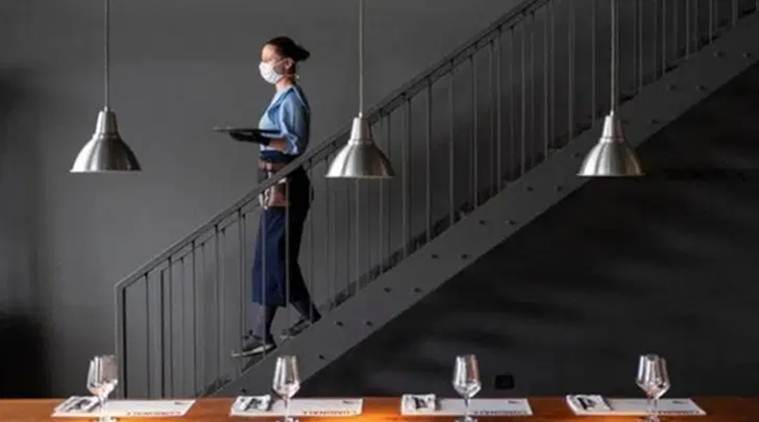
The Indian Express
COVID-18 Watch: Hotels, airlines look for new revenue streams, hold on to cash to tide over liquidity crunch
Other steps like drastic cost control and a sharp reduction in future supply addition are also in the offing.
by Pranav MukulThe hotel and airline segments of the tourism industry, which are typically high fixed-cost sectors and have forgone revenue for almost a full quarter due to the impact of COVID-19 and the subsequent lockdown, are now accessing future revenues to tide over the short-term working capital deficit. While all airlines, which had to cancel flights on account of the lockdown, issued credit shells to passengers to make future bookings, some hotels are offering discounts for future bookings.
Even as the airlines industry was completely shut for two months, with the exception of sporadic cargo flights, the hotel industry, too, has been operating at 10-15 per cent occupancy, with losses for these segments mounting on account of incurring fixed-costs. According to experts, a typical 200-room premium hotel needs to operate at an occupancy of 38-40 per cent to record a cash breakeven. Furthermore, unlike goods, which can be consumed later, a deferred service, like that in the hospitality industry, cannot be consumed later.
To generate cash for keeping themselves afloat, companies in these segments have not only finding new revenue streams but also holding on to the cash they have. A 4-star hotel in Shimla, for instance, is offering a flat 45 per cent discount through gift vouchers which would be valid for bookings till one year. Such a measure would provide some funds for the hotels to wade through cash crunch as they continue to keep their staff engaged to maintain the premises.
In addition to stocking up of liquidity, other measures such as “drastic cost control…preliminary reopening plans and a sharp reduction in future supply addition” are in the offing. “The pandemic and the containment measures introduced by governments globally and in India resulted in a severe drop in foreign and domestic travel across the world, in both the business and leisure travel segment. This will leave a lasting impact on the credit profile of airlines and hospitality companies. Globally, airlines and hotels have acknowledged the depth of this decline with recovery stated two to three years from now,” said Pavethra Ponniah, vice president and sector head, ICRA.
For airlines, the government has announced a set of advisories to refund domestic and international tickets booked for the flights suspended due to lockdown. However, as per the advisories, airlines are bound to provide full refunds only to those passengers who have booked during the lockdown period for travel during the lockdown period. Globally, the International Air Transport Association (IATA) has estimated that ticket refunds to the tune of $35 billion may worsen the financial situation of cash-crunched airlines during April-June 2020.
However, for airlines, which have pointed out lack of any direct relief from the government may lead to downsizing or even shutting down of operations, the supply can be reduced given that most airlines lease their aircraft.
The hotels industry, on the other hand, are bound by permanent supply. “Unlike airlines, hotels are largely permanent supply and the only way to reduce supply is to convert them into apartments and office spaces, but India has not witnessed this trend in the past. With limited scope to fix the supply side of the equation in the immediate term, almost all previous down cycles in recallable history have led to deep discounting. The fragmented nature of the industry defeats cohesive action,” ratings agency ICRA said.
In a bid to partially hold on to lost revenues, hotel companies are also looking at alternate revenue streams such as food delivery, in the same way that airlines operated cargo flights on their passenger aircraft. A number of hotel companies across the country volunteered for offering services as quarantine centres for those people. The Ahmedabad Municipal Corporation (AMC) requisitioned taking over of 60 hotels with 3,000 beds under the Epidemics Diseases Act to provide air-conditioned facilities without any charge from patients. The cost for this is to be borne by the AMC.
As per some hotel industry executives, most hotels have remained operational with at least 20-25 per cent of the staff being asked to turn up for duty to handle the minimal loads that are being witnessed. For a future scenario, however, even as they are receiving queries for room availability, they are not translating into bookings and subsequently hotels are considering discounted offerings to attract consumers at future dates. A survey of general managers in the hospitality industry by HVS-Anarock pointed out that while most general managers did not plan to discount their rates by more than 20%, higher discounting levels were expected in economy and midscale hotels, while upper-upscale and luxury hotels were likely to discount the least.